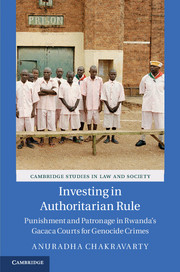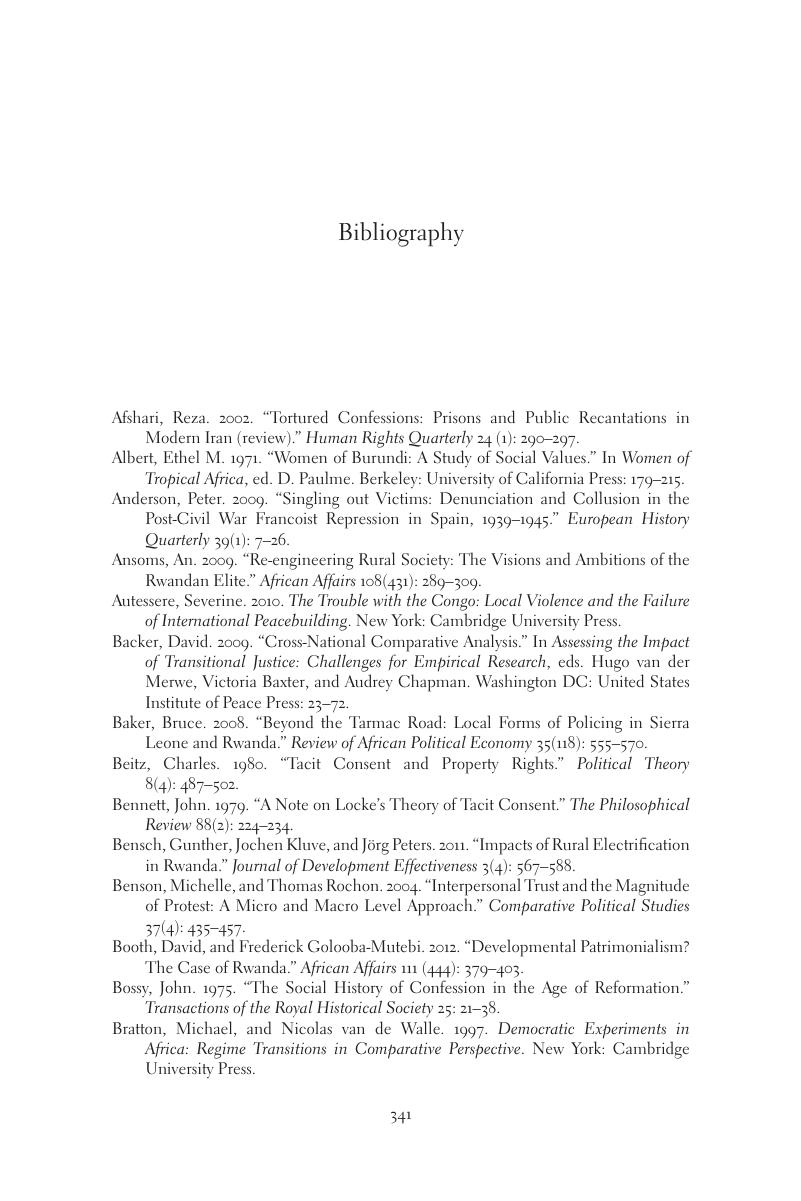 Investing in Authoritarian Rule
Investing in Authoritarian Rule Book contents
- Half title page
- Cambridge Studies in Law and Society
- Title page
- Copyright page
- Dedication
- Contents
- Contents
- Contents
- Preface
- Book part
- Introduction
- Part I Clientelist and Authoritarian Legacies
- Part II Formal and Informal Rules of the Game
- Part III Consolidating Authoritarianism
- Conclusion
- Glossary
- Appendix A Offers of Clemency by the State
- Appendix B Basic Overview of Prison and Community Samples
- Appendix C Sample Selection
- Bibliography
- Index
- Books in the Series
- References
Bibliography
Published online by Cambridge University Press: 05 November 2015
- Half title page
- Cambridge Studies in Law and Society
- Title page
- Copyright page
- Dedication
- Contents
- Contents
- Contents
- Preface
- Book part
- Introduction
- Part I Clientelist and Authoritarian Legacies
- Part II Formal and Informal Rules of the Game
- Part III Consolidating Authoritarianism
- Conclusion
- Glossary
- Appendix A Offers of Clemency by the State
- Appendix B Basic Overview of Prison and Community Samples
- Appendix C Sample Selection
- Bibliography
- Index
- Books in the Series
- References
Summary

- Type
- Chapter
- Information
- Investing in Authoritarian RulePunishment and Patronage in Rwanda's Gacaca Courts for Genocide Crimes, pp. 341 - 356Publisher: Cambridge University PressPrint publication year: 2015


